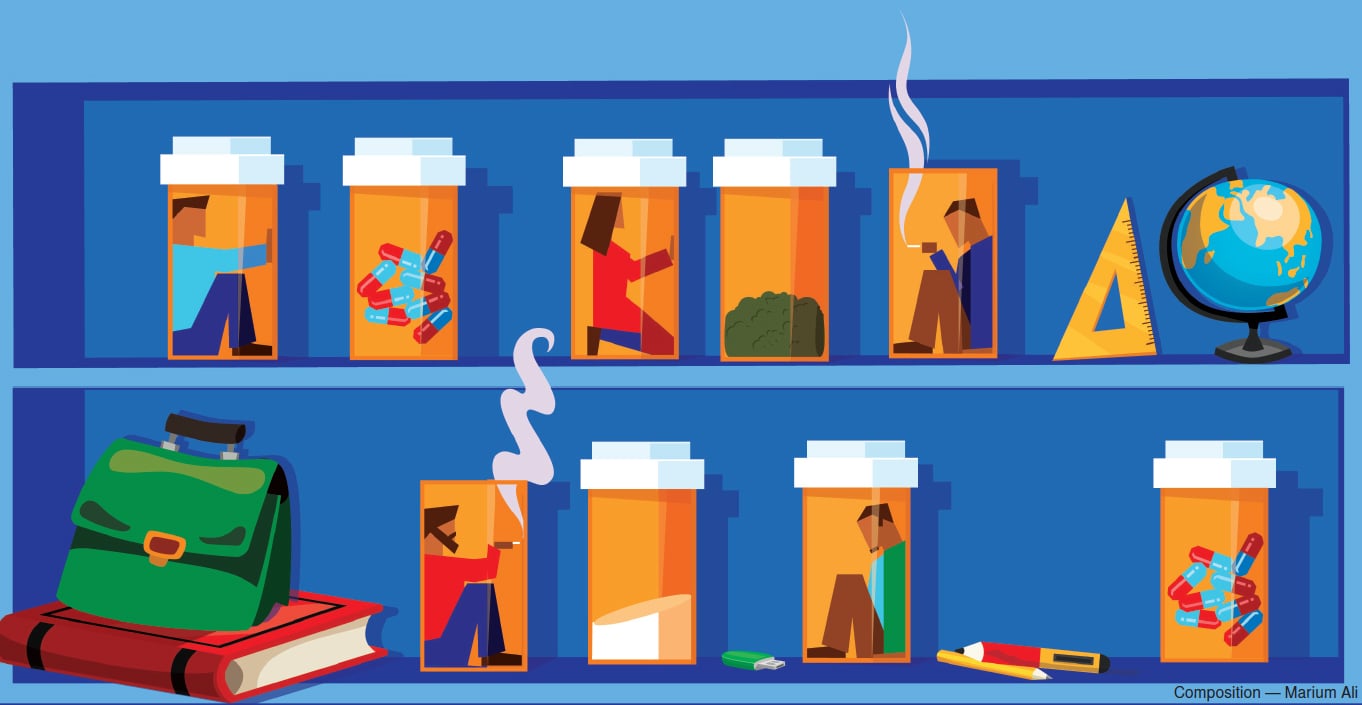
6 years ago · Admin · Comments Off on Overcoming Addiction & Drug Abuse
Overcoming Addiction & Drug Abuse
Addiction disorders are a group of disorders that can cause physical and psychological damage. Receiving treatment is essential for breaking the cycle of addiction.
Drug addiction, also called substance use disorder, is a dependence on a legal or illegal drug or medication. There are many reasons why drug usage soon gets changed to drug abuse. At a very basic level this happens because the person concerned feels a desperate need to deal with stress, to get a momentary high or to just ‘fit in’ with his or her peers, as happens in the case of youngsters. It soon reaches a stage where this need becomes much more than other needs in life and the person begins to believe their survival depends on those drugs.
The most major impact of drug abuse is on the brain, which consequentially affects every other aspect of life of the person addicted to drugs. Severe drug and alcohol addictions do not only destroy an individual’s body but also have an effect on their surroundings and society.
Drug addiction symptoms or behaviours include, among others:
- Feeling that you have to use the drug regularly — this can be daily or even several times a day
- Having intense urges for the drug
- Over time, needing more of the drug to get the same effect
- Making certain that you maintain a supply of the drug
- Spending money on the drug, even though you can’t afford it
- Not meeting obligations and work responsibilities, or cutting back on social or recreational activities because of drug use
- Doing things to get the drug that you normally wouldn’t do, such as stealing
- Driving or doing other risky activities when you’re under the influence of the drug
- Focusing more and more time and energy on getting and using the drug
- Failing in your attempts to stop using the drug
- Experiencing withdrawal symptoms when you attempt to stop taking the drug
Remember, the opposite of addiction is connection. All substances of abuse tend to isolate the user from his/her connections. Every addict is alone in his/her addiction.
Drug addiction can cause serious, long-term consequences, including problems with physical and mental health, relationships, employment, and the law.
You may need help from your doctor, family, friends, support groups or an organized treatment program to overcome your drug addiction and stay drug-free.
Prevention is the best bet. In fact, it is one affliction that can be easily prevented according to medical experts and practitioners. Prevention programmes involving entities such as families, schools and the immediate communities are important in this regard. Media – especially the entertainment segment – also needs to understand its role in this context and play a positive role by resisting the urge to earn millions by glorifying drug abuse.
Sustained treatment is the only option for people who have already gone down the road of drug abuse and are highly into it.
The treatment program should be based, not merely, on de-coupling the addict from the drug or his/her addiction, but should also concentrate on helping the addict to reappraise his/her past, help develop coping skills to deal with stress and boredom and to increase his/her self-esteem. Family therapy must be an integral part of a treatment program.
Normally rehabilitation lasts from nine months to a year, sometimes more, depending on the prognosis of the patient and intensity of drug abuse.
The treatment program should be a holistic one and help the chemically dependent addict to better all four planes of him, i.e. physical, mental, social and spiritual.
Substance-related disorders are chronic, complex diseases that require prolonged, intensive treatment. The type of substance involved and the severity of the addiction will dictate the course of treatment
Treatment often begins with detoxification, using medicine to reduce withdrawal symptoms while a substance leaves the system.
Different types of behavioural therapy and counselling can also support treatment, helping to deprogram certain behaviour and circumstances related to drug use.
If your drug use is out of control or causing problems, get help. The sooner you seek help, the greater your chances for a long-term recovery. Talk with your primary doctor or see a mental health provider, such as a doctor who specializes in addiction medicine or addiction psychiatry, or a licensed alcohol and drug counsellor.
Why Choose Us
We measure our progress by the number of people in whom we restore the hope of a healthy tomorrow. Our doctors are highly skilled, experienced, compassionate and will be there when you need them most. We have the best talent and a team of best psychiatrist and psychologist in Noida.
We understand the decision to seek psychiatric/ psychological care can be stressful and is just not easy. However, be assured as, at Pathfinders Clinic, you will be treated with sensitivity and respect to meet your individual, unique needs.
Book an Online Appointment
Pathfinders Clinic, through its team of mental health professionals, offers proven and latest medical advances in an environment that promotes mental health and enhances a sense of wellness.
Pathfinders Clinic provides online appointment facility to its patients and also for those who wish to seek a second opinion from our mental health experts.
